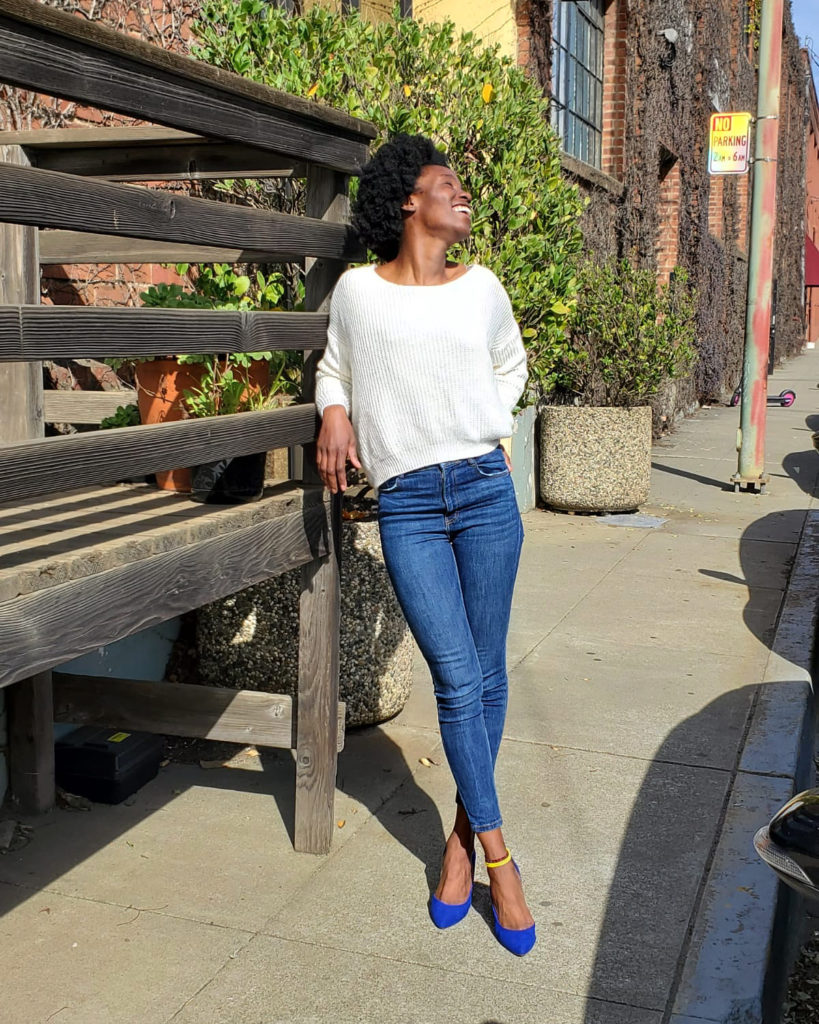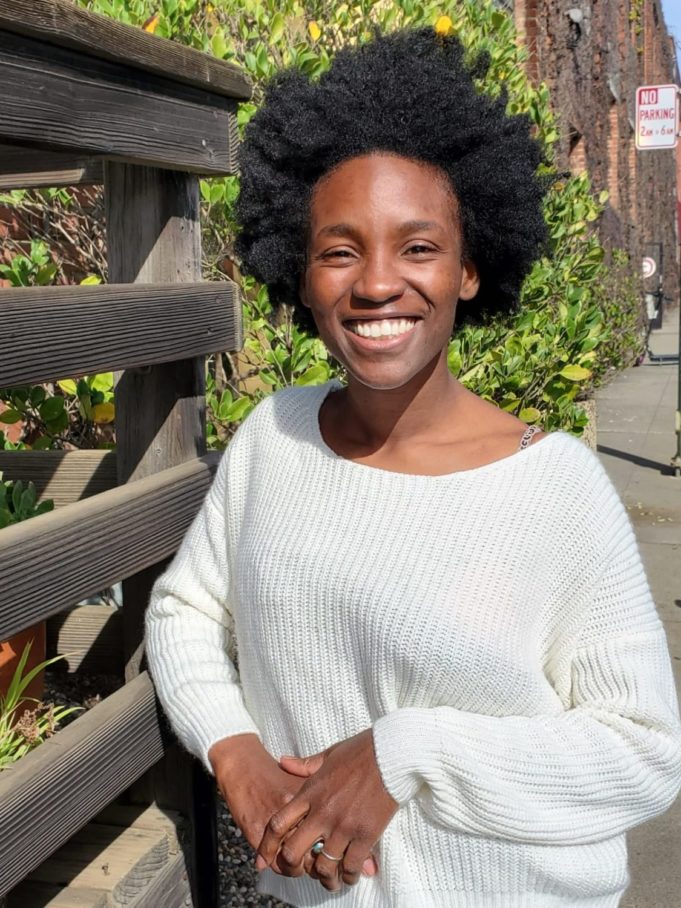One thing that Jodie Geddes wants to impart on the hundreds of girls and young women who will be in attendance as Girls Inc. hosts the Celebration of International Women’s Day March 10 at the Monona Terrace Community and Convention Center is the importance of “dreaming out loud” so that their dreams begin to manifest.
“Our actions follow that dreaming out loud. My talk will be centered around really naming times in my adolescence where I felt challenged and disempowered and what shifted for me and what did the dreaming look like, and what it could have looked like,” Geddes tells Madison365 in a phone interview from Oakland, Calif.
“When we reach a certain age, there’s a moment where somehow we are taught not to dream and it might not happen very explicitly,” she adds. “For me, it’s important to dream … and to dream in a real way. Not just dreaming that feels good, but dreaming that requires some risk.”
Geddes is currently the Healing Circles Manager at Restorative Justice for Oakland Youth (RJOY) where she supports the design and implementation of over 10 weekly restorative justice circles. During her March 10 visit to Madison, Geddes will be a featured speaker as Girls Inc. highlights their “Strong, Smart and Bold” work. Geddes hopes to do a lot of interaction with the audience while she is here in Madison speaking.
“Young people have the ability to dream and in dreaming sometimes there are risks that youth take that as adults, mentors, and parents, we might not agree with,” Geddes says. “In encouraging young people to dream, we have to be prepared for the questions they will ask us and we have to be prepared that in some of that dreaming, that they will challenge us. And we have to be open to that.
“That is important to me, especially with the young women and girls, just asking questions and having them think about moments in their lives where they felt really strong and powerful and also moments in their lives where they felt disempowered or challenged,” Geddes adds. “I hope to spend most of my time engaging the audience and have folks raise their hands and talk, so it’s more about what folks want and recognizing that they have it within themselves rather than expecting to hear from me what to do with their lives.”
Beyond her extensive work with young people and restorative justice, Geddes is the co-author of “The Little Book of Racial Healing: Coming to the Table for Truth-Telling, Liberation, and Transformation” and a spoken-word poet. You can find her writings online at For Harriett or Blavity. Geddes is also a public speaker nationally on the subject of restorative justice, truth processes and reparation.
“I plan on sharing some of my own stories where I had to step into my own power and really dream about what freedom looks like for me,” she says.

Geddes was born in Jamaica. At age 6, I came to the United States where she grew up in Crown Heights, Brooklyn.
“I owe everything to a place I call home – Jamaica, West Indies,” she says. “I was the only one of five that my mom brought to the U.S. so I always think about what that meant to her to make that decision – to take one child instead of trying to take all five children.
“I have this unique experience in my immediate family as well as some of my extended family – because a lot of folks came here older than me – around really seeing my identify shift. There are pieces of writing where I really reflect on this. I came as this young girl, bright-eyed, about the United States and the things I would see.”
The organizing and work with young people that Geddes does now are grounded in her experiences as an immigrant. As a youth, she grappled with the realities of race, gender, nationality, and sexuality.
“I noticed that when my accent changed, there was a different way that folks engaged with me. I became just another black girl from the ‘hood and I really began to recognize my racialized identity in the United States,” she says. “A lot of that led me to justice work where I often felt like I was trying to tell the world that I was beautiful and strong and that people who looked like me were beautiful and strong and I recognized that I was trying to convince other people of that without really believing it.”
So much of her Jamaican identity is important to her.
“If I’m being honest, when I enter spaces, I talk about the privilege I have that I don’t identify as a black Jamaican … I identify as Jamaican,” she says. “There’s a way that Jamaica isn’t racialized in the same way as the United States. I can name my national food, my national bird in a way that gives me great pride. There’s a place that I can really call home without question and I see how that is challenging for African Americans. My Jamaican identity is really incredibly important to me.”
Geddes earned her master’s of arts in conflict transformation from Eastern Mennonite University where she worked with numerous community organizations and young people leading multiple campaigns for healing. She says that she really enjoys her current job as Healing Circles Manager at Restorative Justice for Oakland Youth (RJOY)
“I think what I like most about my work is that it teaches me to give myself more grace,” Geddes says. “That’s it’s OK to laugh and it’s OK to cry and it’s OK to do that with my young people and other young people and that I shouldn’t feel ashamed in that moments where I get upset … I don’t have to put on a face for you and pretend like everything is OK and I have it together when I don’t.
“I love laughing with my kids. Sometimes I think that kids are so witty. One of the things that Maya Angelou used to talk about is that our innocence never leaves us and I believe that through society we depress our innocence – that childlike joy you have where you run through sprinklers and you don’t worry about being wet or dirty. As you get older, you’re like, ‘Ewwww. This is gross.’
“So I think the humor and not feeling shame for authentically the way I walk in the world …it’s beautiful to be able to share those moments with the young people I serve … or any young person I meet,” she adds.
Geddes says that she’s found through her work and in her life that adults too often think that young people don’t understand what is going on around them.
“But young people are so well aware of and can articulate what is happening and at a very young age,” Geddes says. “So sometimes I think we underestimate the power of young people and to be clear, in my work, I’ve seen that we often underestimate the power of young black and brown youth or poor youth.”
As the keynote speaker for Girls Inc.’s Celebration of International Women’s Day, Geddes hopes she can be an inspiration to girls and young women in Madison.
“I’m looking forward to laughing,” she says. “I am looking forward to the humor that will emerge from having all of these girls and young women together at the conference.
“I’m looking to stay connected, too. No matter where I go to speak, I think it’s important to stay connected so I’m hoping to build relationships and connections where I’m able to see who these young women and girls become, what this program becomes, and how this center and Madison grows,” she adds. “I’m looking forward to creating space through the opportunity of the talk to really be able to start forming and building some meaningful relationships.”










